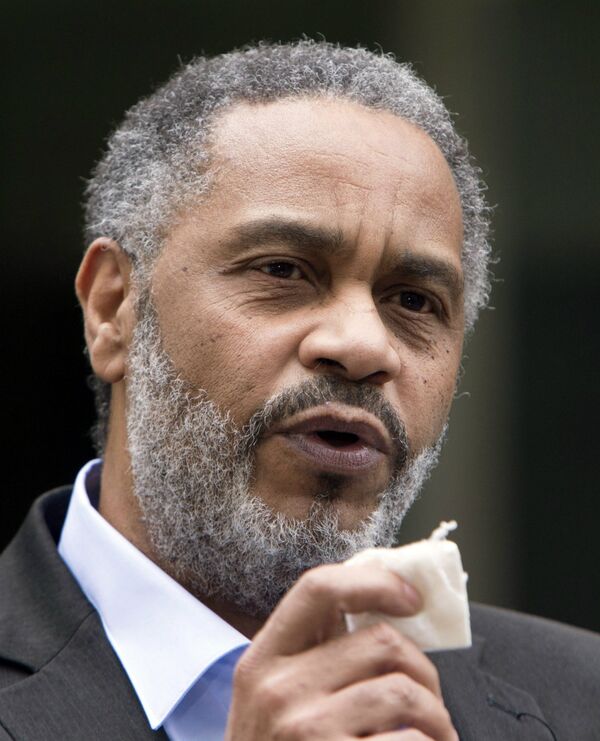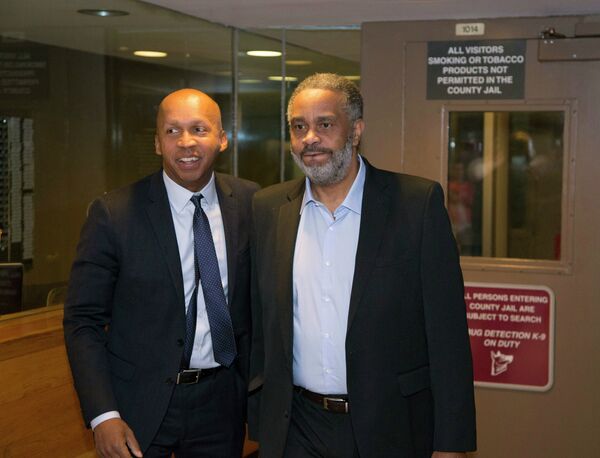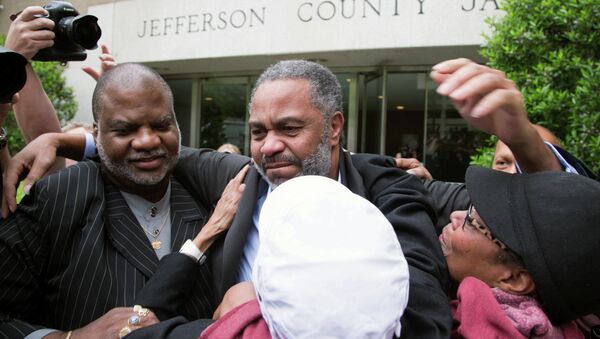"All they had to do was to test the gun, but when you think you're high and mighty and you're above the law, you don't have to answer to nobody," an elated Hinton told reporters Friday morning.
"But I've got news for you — everybody that played a part in sending me to death row, you will answer to God."
Hinton, who was 29 at the time, was convicted of the murders of John Davidson and Thoman Wayne Vason. The men were killed during robberies at Mrs Winner’s and Captain D’s restaurants in Birmingham where they were managers. Investigators made Hinton the focal point of their investigation after a third person, who was shot at a robbery at a restaurant called Quincy’s, identified Hinton as the shooter. The case hinged on six bullets found at the crime scene, which prosecutors tried to link to the.38-caliber revolver kept in Hinton’s home, despite claims by Hinton’s lawyer Bryan Stevenson that Hinton had an alibi at the time of the Quincy’s robbery.

"The connection has always been the bullets," said Chief Deputy District Attorney John R. Bowers, Jr.
The US Supreme court intervened last year, ruling that Hinton had “constitutionally deficient representation” at his initial trial. Hinton’s attorney thought he had only $1,000 to recruit a firearms expert to fight the prosecutor’s case. The expert, who was hired despite attorneys’ concerns about his credentials, struggled during his cross-examination, even reportedly causing laughter in the jury box when he was cross-examined.
Hinton maintained that he was innocent throughout his trial and incarceration.

"Race, poverty, inadequate legal assistance, and prosecutorial indifference to innocence conspired to create a textbook example of injustice," said attorney Stevenson, who also directs Alabama’s Equal Justice Initiative. "I can't think of a case that more urgently dramatizes the need for reform than what has happened to Anthony Ray Hinton."
After Hinton’s conviction, Stevenson continued to argue the case for 16 years.
"We've been hoping for this. We've believed that this should have happened," he said.
Stevenson told the Associated Press that Hinton wept Wednesday night after hearing the news that he’d soon be freed.
"The State of Alabama let me down tremendously…I have no respect for the prosecutors, the judges. And I say that not with malice in my heart. I said it because they took 30 years from me," Hinton told the Press.



